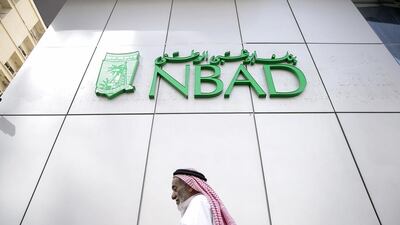National Bank of Abu Dhabi (NBAD) has placed the largest and longest tenure “Formosa” bond from the UAE, raising US$621 million from investors hungry for emerging market paper.
A Formosa is a bond issued in a currency other than the New Taiwanese dollar and listed in Taipei, and that has a credit rating of BBB or higher.
The unsecured zero coupon note has a tenure of 30 years. This is the first time NBAD has sold a Formosa bond and the bank has the right to pay investors early in 2021.
The bank did not give an indication of pricing but said that it had initially earmarked $250m to $300m for the bond, suggesting that cost of the issuance would be favourable to Abu Dhabi’s biggest lender.
A banker familiar with the transaction, however, said that the bond would carry a 4.2 per cent annual rate of return – more competitive than the bank could have got in a more conventional international issuance. The current yield on a US 30-year treasury bond is 2.45 per cent.
The buyers are all institutional investors and the bond is expected to be settled by October 21 on the Tapei exchange, NBAD said yesterday.
“NBAD is extremely happy with the outcome of this transaction and to again be at the forefront of innovative issuance from the region,” said Stephen Jordan, the group treasurer at NBAD.
“The overwhelming participation in this transaction clearly highlights the confidence in the creation of a larger, stronger bank through the merger of FGB and NBAD.”
This is the first public transaction since the merger was announced in July “and further demonstrates the bank’s continuing efforts to diversify the funding base by accessing new investors in new geographies”, NBAD said.
The sale comes amid a flurry of bond issuances from the region, and increased demand for emerging market debt and a greater need for cash in the Arabian Gulf after two years of battered oil prices.
Deficits in countries across the region have widened over the past year as the steep drop in oil prices empties coffers and forces governments to dip into sovereign wealth funds, and borrow more money so they can keep spending on infrastructure and social services.
These governments, as well as related entities and companies and banks, have also been selling bonds in international markets at a rapidly growing pace.
The UAE accounted for $14.4 billion issued in the second quarter, Qatar $9bn and Oman $5bn, according to a report published last month by the Bank for International Settlements.
The sales come amid a jump in demand from international bond investors.
The Bloomberg US Dollar Emerging Market Sovereign Bond Index has gained 15 per cent this year as investors hunt for yield in a global bond market that has been marked by record-low interest rates in the US and negative rates in Europe and Japan.
Indosuez Wealth Management, the global wealth management brand of the French bank Crédit Agricole, said yesterday that the Arabian Gulf bond market was likely to continue to see an uptick in issuances amid stagnant oil prices.
“The large supply of GCC sovereign and quasi-sovereign bonds have provided investors with a stable option during this high-risk period caused by liquidity shortfalls perpetuated by the prolonged period of low oil prices,” said Christiane Nasr, the director and senior investment adviser at Indosuez Wealth Management.
“For this reason, bond issuances in the region were able to attract a large number of international investors at the end of the second quarter of 2016.”
Credit Agricole and HSBC were joint book runners for the NBAD issue. Cathay United Bank acted as co-manager and Citigroup and NBAD were the structuring agents.
mkassem@thenational.ae
Follow The National's Business section on Twitter

